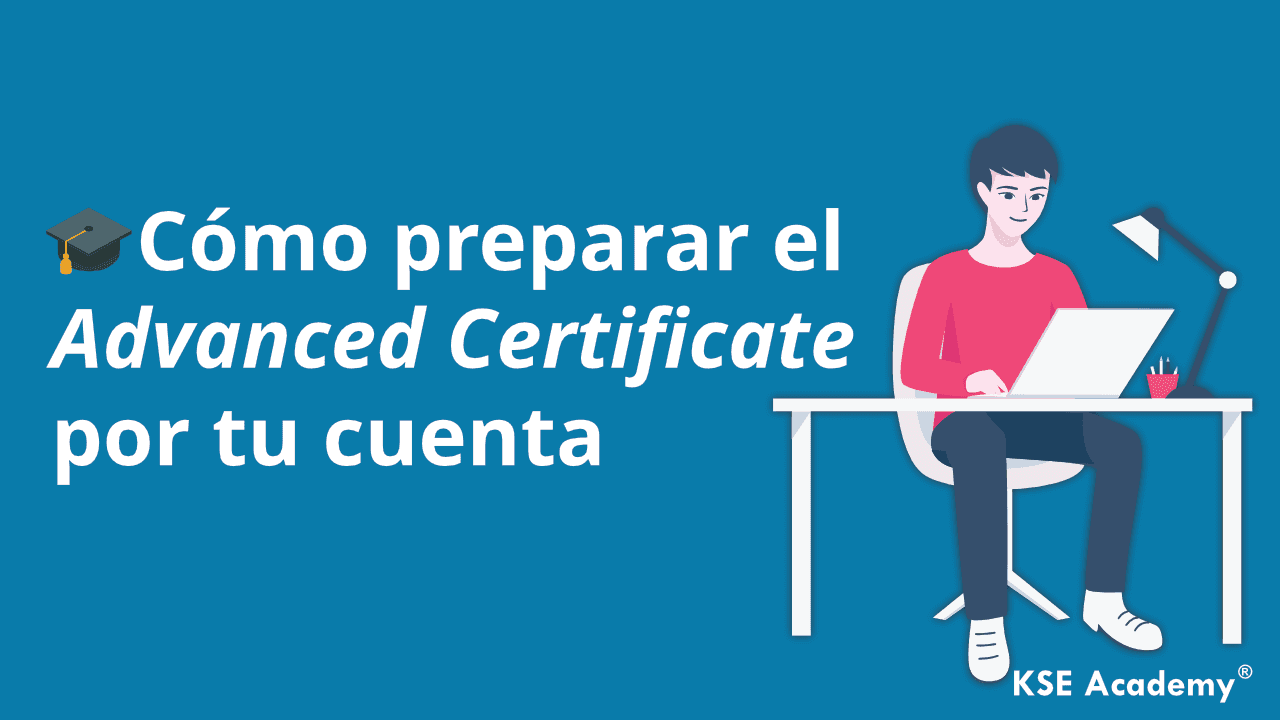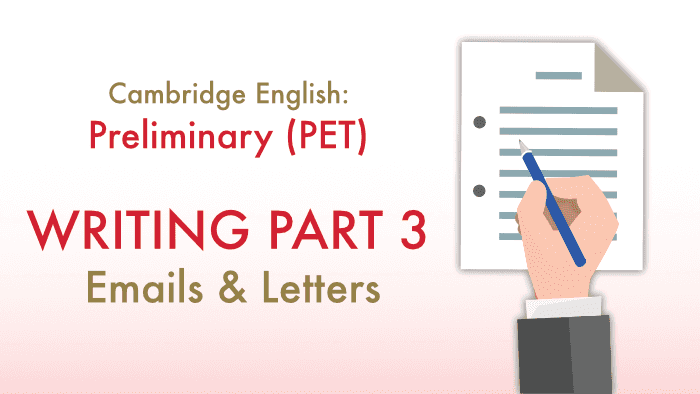As you already know, Keep Smiling English focuses primarily on providing resources for people who work with Cambridge English exams (Preliminary, First, Advanced). All the handouts you can find on this website are downloadable as pdf documents, and they all follow the format of Cambridge English paper-based exams. However, you must know that official C.E. exams can also be taken in a computer-based format. What does this mean? We are going to see the different pros, cons, similarities and differences of each format.

How do I register for an exam?
For both paper- and computer-based exams you have to find a local registration centre near you. They will inform you about the dates, prices, courses, etc. that are available, so you can choose what suits you best. You can find your nearest exam centres here.
Where will I take the exam?

The fact that an exam is computer-based does not mean you can take it at home on your computer! Both paper- and computer-based exams take place in a venue arranged by the centre you registered with. In my experience as an invigilator and test-sitting administrator of Cambridge English exams, the venues are usually different for each exam format:
- Paper-based exams (PB): these usually take place in a relatively large venue, depending on the number of candidates. In my case, I have usually invigilated paper-based exams in hotel conference rooms, with 200+ candidates. However, this may also take place in another kind of venue.
- Computer-based exams (CB): these exams are usually arranged to take place in smaller venues, as they require places with a computer per candidate. These venues are normally language schools, academies or colleges that have previously been authorised by the local examination centre.
Where and when will I do the speaking test?

Again, this depends on your exam centre. Sometimes speaking tests take place on the same day of the exam. However, for long exams, such as First, Advanced or Proficiency, the speaking paper may take place on a different day. No matter what, the speaking test will be with two examiners, not on the computer. As for the venue, it will be chosen by your local exam centre.
Is the exam different? Is it easier or harder?
No, absolutely not. The exam is the same, it has the same format, same number of papers, items, etc. Is it easier? No. The difficulty of the content is the same. However, you may find it easier to carry out certain tasks on a computer or on paper, so it is up to you. For this reason, I strongly recommend trying both paper- and computer-based mock tests before taking the exam, as you want to feel as confident as possible on the day of the exam. For instance, some people don’t like typing on the computer. For these, I wouldn’t recommend doing the exam on a computer, as they will have to type – quickly, at times – during the Writing, Use of English and Listening papers. Other people love underlining and making hand-written notes on the margins of the exam paper. For these people, doing the Reading paper on a computer might not be very comfortable. However, if you feel confident typing and reading on a screen, computer-based exams will be just for you!
What about the timing?
The timing for each part of the exam is the same, regardless of the format you take it in. However, in my experience, candidates usually find that time is less limited during the writing paper on a computer, as typing is generally quicker than writing by hand. Furthermore, on a PC you can edit your text more easily than on paper. On paper, candidates usually write a draft and then rewrite a final version, whereas on a computer, all this happens at the same time, so it is more time-saving. However, this depends on your preference!

Something that I would point out here is that during computer-based exams you have a countdown clock on your screen that tells you how much time you have left. During a paper-based exam you will have a clock somewhere in the room, and the supervisor will warn you about the time near the end of each part. You can also ask the nearest invigilator. But remember, the timing is exactly the same.
Which is more expensive?
This depends on the exam centre you register with. So do check if there’s a difference in price before you register. In Granada (Andalusia, Spain), where I have worked as invigilator and test-sitting administrator, they both cost the same.
When do I get my results?
This is, in my view, a great advantage of computer-based exams, as the results take only 2 weeks to come out. When you take a paper-based exam, this usually takes around 4-6 weeks. Therefore, if you are in a bit of a hurry to get a certificate, you should definitely go for the computer-based format.

How do my answers reach Cambridge English Language Assessment?
When you do your exam on a computer, your answers are stored automatically every time you make a change (e.g.: answer a question, edit a sentence, etc.). These answers are stored on your computer and uploaded to Cambridge English servers at the end of each part of the exam (i.e. Reading and Use of English, Listening, etc.). When you do it on paper, you have an answer sheet that you have to fill in while you do the exam or at the end of each part. The invigilators collect this answer sheet at the end of every part, and store safely. This is later sent to a Cambridge marking facility. Personally, I believe this is an advantage of computer-based over paper-based exams, since you can make mistakes like skipping a number, marking the wrong answer, etc., while transferring your answers onto your answer sheet.
Other important considerations
 Listening: during paper-based exams the listening is played on the sound system of the venue. Some people complain about the quality of the audio, or maybe because they were seated far from one of the speakers, etc. During computer-based exams each candidate has a pair of headphones, which ensures better audio quality and, at least, the fact that you have total control over the volume during the whole exam.
Listening: during paper-based exams the listening is played on the sound system of the venue. Some people complain about the quality of the audio, or maybe because they were seated far from one of the speakers, etc. During computer-based exams each candidate has a pair of headphones, which ensures better audio quality and, at least, the fact that you have total control over the volume during the whole exam.
- Results: in my experience, students tend to get better results in computer-based exams. This is probably only due to the fact that it suits their needs better, as the difficulty is exactly the same.
- Technical problems: although they shouldn’t occur frequently, technical proble
 ms are more common during computer-based exams. Computers are subject to hardware and software performance, while paper-based exams can hardly be affected by any technical issues besides blackouts and problems with the audio. However, in all fairness, Cambridge English takes during-exam issues very seriously, and every problem occurred during an exam is thoroughly reported and assessed in order to ensure that this does not affect the mark of any of the candidates. This, for instance, may lead to some questions being invalidated.
ms are more common during computer-based exams. Computers are subject to hardware and software performance, while paper-based exams can hardly be affected by any technical issues besides blackouts and problems with the audio. However, in all fairness, Cambridge English takes during-exam issues very seriously, and every problem occurred during an exam is thoroughly reported and assessed in order to ensure that this does not affect the mark of any of the candidates. This, for instance, may lead to some questions being invalidated.
- Highlighting and taking notes: while on paper you can take all your notes on the exam paper with a pencil, on the computer you have the possibility of highlighting, taking notes and flagging some questions for you to revisit later. Besides, in both cases you are provided with separate sheet of paper to take hand-written notes.
Exam samples
Find both exam formats here: Preliminary – First – Advanced
Exam day tips
Download these: Computer-based exam day tips – Paper-based exam day tips
Any questions? Ask them below.
If you liked this post, please rate, comment and share. Don’t forget to keep up with KSE’s latest news on Facebook, Twitter, Pinterest, Google+ & YouTube, and fill in the form below to subscribe to the newsletter and receive more awesome English posts. You won’t regret it! Keep Smiling! 😉





16 Comentarios. Dejar nuevo
Hi!, This topic was very useful for me, since I recently suffered technical problems in the listening during a CB exam. The PC got blocked while the recording continued playing. I told the invigilator, of course, but she couldn’t stop de exam for me and when I was moved to another PC the Part 1 was gone and the Part 2 was just in the middle. Of course I got very nervous, so I wasn’t concentrated for the Part 3 and Part 4.
It’s a pitty, because I think I did well on the other papers. Do you know what is the procedure that Cambridge applies in this situations ?.
Thanks for your help in advanced.
Hi! Glad you found this post useful, but I’m sorry to hear about your problem.
But don’t worry, in these cases the invigilator and supervisor fill in a ‘special considerations report’ and this is sent to Cambridge English Language Assessment through your local exam centre. In this report they must have detailed your problem and the questions that were affected by this technical issue. Cambridge will take this into consideration, and they will give you a score based only on the questions that you could listen to normally. However, I do know that despite this, candidates usually end up having a bad feeling about the exam. I hope this is not your case and that you get an excellent final score.
For more interesting posts, don’t forget to subscribe to this blog, and to follow Keep Smiling English on Facebook, Twitter, Pinterest and Google+. 😉
I have already subscribed my self!. :).
Coming back to the topic, in my opinión, the more serious and fairest way to deal with this kind of problems would be repeat de Paper (in this case the Listening) for the people affected. I can’t understand why Cambridge prefers to «trick» the assesment rather than repeat it.
But, unfortunately, this is not in our hands!
Hi Francisco! First of all, thanks for subscribing! Let me give you my view on the subject.
I understand your point of view, and I must admit that you’re probably right. However, there are many problems in allowing some people to repeat one of the papers (e.g. Listening). Firstly, it would be «unfair» to allow some people to repeat the parts that were not affected by the technical issue, even if it is a different exam. Secondly, some people would complain or «fake» issues just to have another chance at the listening, and it would be difficult to tell who deserves another chance and who doesn’t. Thirdly, it wouldn’t be viable for Cambridge to go repeating parts for certain people every time there’s a technical issue. This is so because each exam involves a lot of organisation and coordination between Cambridge, the Exam Centre, the Venue and the TSA and the Invigilators, and it would be extremely costly to do it.
I know that all of this has probably not changed your opinion, and I am not defending Cambridge English in any way, but you should know that it is simply much more viable to «trick» the assessment than to carry out a whole new test or just one paper.
Anyway, I hope your results are good! If you ever need anything else or have any other doubts, please contact me. 😉
Hello,
I have a question. A candidate asked us, as a preparation center, if there are any differences in correcting the CB vs the paper exams. Case in point, when doing a mock for a computer based exam in the FCE use of English section, he made the mistake of mispelling a name- Joe became Jo- and the answer was considered wrong. Would a paper based exam correction give this answer as valid? the rest of the answer was correct.
Thank you for your help.
Hi! Thanks for your comment.
If you’re referring to UoE part 4 (sentence transformation), I believe it would be given one mark out of two. I am not sure about this, but I think that Part 4 is marked by an examiner, given that it is an open-answer task (somewhat open, anyway). In this part, if you make a small mistake (e.g.: Jo instead of Joe, wrong preposition, etc.) you lose one mark, instead of two.
Also, I believe paper-based and computer-based marking are more similar than people think. I’m not sure, but I think that in computer-based exams everything is automatically scored except both writing tasks and UoE part 4. On paper, however, everything is automatic except those tasks that require writing by hand (UoE parts 2, 3 and 4; both writing tasks and Listening part 2).
As I’ve said, I can’t be sure; I invigilate and supervise exams, but I am not an examiner. Thanks again for commenting and I hope that I have helped you a little with my thoughts.
Hi!
I have been reading this issue and I have already a question. Did you know if the title or qualification from Cambridge specify if someone did the exam on a computer or paper based? I don’t know anyone who do this exam before and no one explain this.
Hi, María! Thanks for your comment. As fas as I know, the actual certificate doesn’t provide that type of information. Actually, it doesn’t even appear on your statement of results. I believe it is because it really isn’t important if you did a paper-based or a computer-based exam, as the certified level of English is the same. Let me know if you have any more questions. 🙂
Hello Luis, thank you for tell us more about CB cambridge exams…I was wondering whether there are more examples of CAE CB exams uploaded somewhere? at the moment I only could find the test shown on the official cambridge site and I need extra training before I am taking my real test. Thank you in advance
Hi María! I’m sorry, but I don’t think there are any other examples of official CB tests anywhere, as Cambridge doesn’t offer more, I’m afraid. However, as you know, the format is exactly the same as paper-based tests, so you can still get good practice with PB tests. The difficulty and timing is exactly the same, so you don’t need to worry about anything else. 🙂
I want to ask for computer based examinations. Is the writing test being evaluated by an examiner or computer softwares?
Hi! By examiners, more than one, in fact. ????
Super useful article! Thank you a lot!
You’re welcome!
Hi Luis, thanks for your useful post. I was wondering about computer based tests, Listening Section in particular. My question is, are the answers checked by examiners (not only by the own computer)? I was practising with some exercises, and I wrote a proper name with quotation marks, because it was an unknown, invented name of a room. It was considered wrong, but the words were correct, so I am kinda worried because of that little unfairness which I might face during the exam.
Hi Roberto! Thanks for your comment. Honestly, I don’t know the answer to your question, but my guess has always been that anything that is written with words (e.g.: UOE Parts 2, 3 & 4, Listening Part 2, etc.) is marked by a human. So I wouldn’t worry about that. However, I would advise you to never use quotation marks or any other punctuation mark, except for hypens (-). I don’t think I’ve ever seen any answers in official exams with punctuation marks, not even commas in conditional sentences (though I do recommend using those if necessary). So yeah, don’t worry about that, it won’t affect your final mark, but do follow my advice. 🙂